Doctor of Philosophy (Ph.D.)
Comparative African Politics and International Relations
Georgia State University
2010
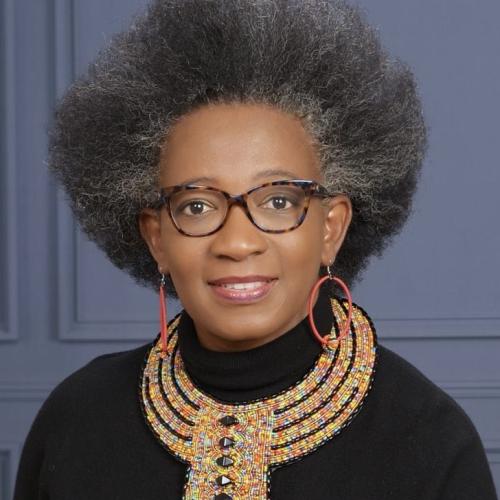
J. Jarpa Dawuni is a Full Professor of Political Science at Howard University, Washington D.C. She is a qualified Barrister-at-Law before the Ghana Superior Courts. She holds a Doctorate in Political Science from Georgia State University. Her primary areas of research and advocacy include law and development, judicial politics, women in the legal professions, gender and the law, international human rights, democratization and women’s civil society organizing. Her books include: The Oxford Research Handbook on Women in International Law. Oxford: Oxford University Press 2025 (co-edited with N. Grossman, J. Ramji-Nogales and H. Fabri Ruiz); African Women Judges, Storytelling as Judicial Freedom (Palgrave Macmillan 2025); Intersectionality and Women’s Access to Justice in Africa (Rowman and Littlefield, 2022), Gender, Judging and the Courts in Africa: Selected Cases (Routledge, 2021), International Courts and the African Woman Judge: Unveiled Narratives (Routledge, 2018) co-edited with Judge Akua Kuenyehia and Gender and the Judiciary in Africa: From Obscurity to Parity? (Routledge, 2016), co-edited with Gretchen Bauer.
She is the Founder and Executive Director of the non-profit organization, the Institute for African Women in Law. She is also the founding Director of the Howard University Center for Women, Gender, and Global Leadership, established through a $1,000,000 gift in 2020. She is a multiple-award winner. In 2023, she received the Robert L. Perry Award for Mentoring from the Association for Ethnic Studies. In 2022, she earned two WOZA Women in Law Awards—Global Transformation Leadership and Best in Thought Leadership, Innovation, and Academia. In 2020, she received the Women in Law-Austria Justitia Awards in the International Academic category for her scholar-activism in advancing women’s rights and women’s issues in law. In 2021, she was named among the top 100 women law firm owners by Courtroom Mail-Nigeria for her efforts in promoting global awareness of African Women in Law through research, mentoring, and advocacy. In 2016, she received President Obama’s Volunteer and Service Award for her work on the Board of the African Research Academies for Women. In 2018, she was honored with the Outstanding Assistant Professor Award at Howard University.
Prof. Dawuni has held several prestigious global fellowships. She is a Fellow and holds the Chair for Interdisciplinary Sustainable Development at the Institute for Advanced Studies, Aix-Marseille. She is a Fellow of the Salzburg Global Seminar, a Fulbright Scholar, a Carnegie African Diaspora Fellow, and a Fellow of the Stellenbosch Institute for Advanced Studies (STIAS) in South Africa. Her other fellowships include the Gender and Power Fellow at the Center for Democratic Development in Ghana, and a Global Fellow under the Global Women’s Leadership Program at The Wilson Center in Washington, DC. In 2022, she was a Fulbright Scholar at the Center for Democratic Development, where she developed a gender strategy for the think tank and led seminars and training on gender sensitivity. In 2018, she served as a Fulbright Specialist Scholar in Ghana, where she designed a Center for Research in African Union Law at the Faculty of Law at the University of Science and Technology. In 2016, she received the Carnegie African Diaspora Fellowship to undertake a project on graduate student mentoring and research at the Faculty of Law, University of Ghana.
She has been a Visiting Professor in the UNESCO Peace Masters Program at the University of Jaume 1 in Castellon, Spain, and an Adjunct Associate Professor of Law at the Washington College of Law at American University in Washington, DC. In 2017 she was a Visiting Scholar at Queen’s University Faculty of Law in Kingston, ON, Canada, and in 2015 she was a Visiting Scholar at the University of Copenhagen Faculty of Law iCourts Center of Excellence for International Courts.
Prof. Dawuni is the founder and Executive Director of the non-profit Institute for African Women in Law (IAWL) which focuses on enhancing the capacity of women in the legal professions in Africa and the Diaspora. She sits on board of the West Africa Research Association (WARA) and the African Research Academies for Women (ARA-W). Prof. Dawuni sits on several boards, including the African Studies Association, and the Law and Society Association. She belongs to several professional bodies and is the past Co-Convener of the Gender and Judging Collaborative Research Network of the Law and Society Association, Co-Convener of the Women’s Caucus of the African Studies Association. She sits on the editorial board of the Journal of Politics, Journal of International Politics and Development (JIPAD) and the Peter Lange Book Series on Studies in Law and Politics. Her research has appeared in journals such as Studies in Gender and Development in Africa, Journal of African Law, University of Baltimore Law Journal and Africa Today. Dr. Dawuni has presented her research internationally at professional conferences and has been invited to speak at several universities, conferences and expert group meetings.
Comparative African Politics and International Relations
Georgia State University
2010
International Development Studies
Ohio University
2004
Law
Ghana School of Law
2001
Law
University of Ghana
1999
National Science Foundation: Demographic Variation of Women Judges ($700,000). (PI)
Read: Global Voices | This Ghanaian barrister is building bridges between law, feminism, and social change
Watch: Voice of America | Our Voices 610: Inspire Women's Voices
Listen: WHUR | Women’s History Month, Empowering Black Women
Read: The Washington Post | Howard University Received $ 1 million to establish a Women’s Center
The legal profession in Ghana: from indigenization to globalization
The legal profession in Ghana traces its origins to the British legal system which was transplanted to Ghana during colonization. Since the first Ghanaian lawyer was called to the British Bar in 1887, the legal profession has grown and developed into a cadre of lawyers who act in various professional capacities. This article uses a historical institutionalist approach in examining the development of the legal profession in Ghana. The article provides in depth analyses of the changes that have taken place in the profession since the first law school was established in Ghana in 1958. It examines various transformations that have occurred, and how lawyers have navigated the fast-changing globalization trends at the domestic and international levels. The article concludes with ideas for future research on the legal profession in Ghana.
Representation and Inclusion in Diplomacy: A Closer Look at Black Women US Ambassadors
This paper will first discuss and evaluate the lack of diversity in the appointment of Black women as ambassadors. Second, it will briefly discuss the history of past and present Black women ambassadors. Third, the paper provides recommendations and advocates for increased diversity and inclusion of Black women in the Foreign Service.
Vive la Diversité or Aluta Continua? Achieving Gender Equity on the African Court on Human and Peoples’ Rights in Connecticut Journal of International Law, Volume 34, No. 3, 2019
This article explores two interrelated questions; first, how did the African Court on Human and Peoples’ Rights (ACtHPR) achieve a sex balanced bench within the first 13 years of its existence? Second, how can the record of the ACtHPR be replicated in other regional courts? This paper explores these questions within the context of the ACtHPR, an African regional court based in Arusha, Tanzania.
African Women Judges on International Courts: Symbolic or Substantive Gains? in University of Baltimore Law Review Vol. 47, 2 (3)
This article documents the substantive contributions women judges make to international courts. It moves beyond symbolic and descriptive analyses of why gender matters on international courts and opens up a new discussion on the need to more closely evaluate the contributions women judges bring to international courts.
Her Ladyship Chief Justice: The rise of female leaders in the judiciary in Africa
In recent years, women have been selected as leaders of African judiciaries. This ar- ticle identifies where and when women have become chief justices and presidents of constitutional courts from 1990 to 2014. We profile women from three civil-law and three common-law countries and find that the women selected meet or exceed the requirements for holding the highest position in the judiciary. We then explore why some African countries, but not others, have had female judicial leaders. We initially find that the selection method may be less important than the type of le- gal system, the commitment of gatekeepers, the end of major armed conflict, and regional diffusion in explaining why some countries have seen women rise to leadership positions in the judiciary.
The Gendered Face of HIV/AIDS: The Move Towards Policy Implementation in Ghana in Studies in Gender and Development in Africa (SIGADA). Vol. 2, September. (pp.78-94).
This paper examines the institutional and structural frameworks for dealing with HIV/AIDS in Ghana. Using concept analysis, it examines the frameworks for their gender and development implications. It finds that the social group most adversely affected by HIV/AIDS in Ghana is women. This is attributed to social, economic, cultural, and institutional obstacles. While efforts at fighting the disease by the Government of Ghana through the Ghana Aids Commission, donor partners and civil society are noteworthy, it is also clear that the frameworks applied do not adequately address the gendered nature of the HIV/AIDS epidemic.
The Oxford Research Handbook on Women in International Law (2025)
This book interrogates women's interrelationship with international law's institutions, norms, and theoretical approaches.
African Women Judges: Storytelling as Judicial Freedom (2025)
This edited volume centers the voices of African women judges as agents of justice and equality.
Intersectionality and Women’s Access to Justice (2022)
This book propounds layered intersectionality as a paradigm for examining how gendered factors affect women's access to justice, whether as judges or litigants.
Gender, Judging and the Courts in Africa: Selected Studies (2022)
This book provides a timely and broad-ranging assessment of gender and judging in African judiciaries. Employing different theoretical approaches, the book investigates how women have fared within domestic African judiciaries as both actors and litigants.
International Courts and the African Woman Judge: Unveiled Narratives (2018)
A sequel to Bauer and Dawuni's pioneering study on gender and the judiciary in Africa (Routledge, 2016), International Courts and the African Woman Judge examines questions on gender diversity, representative benches, and international courts by focusing on women judges from the continent of Africa.
Gender and the Judiciary in Africa: From Obscurity to Parity? (2016)
While women’s increasing numbers and roles in African executives and legislatures have been addressed in a burgeoning scholarly literature, very little work has focused on women in judiciaries. This book addresses the important issue of the increasing numbers and varied roles of women judges and justices, as judiciaries evolve across the continent.
Chapter 6: Intersectionality, Feminist Judgments, and the International Criminal Court: Whose Feminist Is It Anyway? in Feminist Judgments: Reimagining the International Criminal Court (pp. 87-103).
Chapter 1: Why Women and International Law? in The Oxford Research Handbook on Women in International Law (pp. 3-18).
Chapter 32: Feminizing Third World Approaches to International Law in The Oxford Research Handbook on Women in International Law (pp. 519-534).
Chapter 1: Who Will Sing Their Songs? Women Judges and the Power of Judicial Storytelling in African Women Judges: Storytelling as Judicial Freedom (pp.1-30).
Chapter 1: Layered intersectionality and framing feminist legal discourse on access to justice for women in Intersectionality and Women’s Access to Justice.
Introduction: Gender and judging across Africa: A case of old wine in new skins or new wine in old skins? in Gender, Judging and the Courts in Africa: Selected Studies.
Chapter 6: Transplantation and Domestication of American Models of Legal Education in Nigeria. in American Legal Education Abroad: Critical Histories (pp. 139-161).
Chapter 7: Breaking the veil of masculinity? Women in the Legal Academy in Ghana in Gender and Careers in the Legal Academy (pp. 151-172).
Chapter 26: Keeping Gender on the Agenda for International Benches: A case study of the African Court on Human and Peoples’ Rights in Identity and Diversity on the International Bench: Who is the Judge?
Women in Judiciaries Across Africa in The Palgrave Handbook of African Women's Studies (pp. 353-373).
Chapter 15: Judicial service commissions and the appointment of women to higher courts in Nigeria and Zambia in Research Handbook on Law and Courts (pp. 213-230).
Chapter 5: Teaching Through the Lens of a Mother in Paradise to Regain: Post-Obama Insights from Women Educators of the Black Diaspora.
Chapter 26: Matri-legal Feminism: An African Feminist Response to International Law in Research Handbook on Feminist Approaches to International Law. Edward Elgar Publishing, (pp. 445-462).
Chapter 4: Judge Akua Kuenyehia: Leaving a Mark Along the Journey for Human Rights in International Courts and the African Woman Judge: Unveiled Narratives.
Introduction: Challenging Gender Universalism and Unveiling the Silenced Narrative of the African Woman Judge in International Courts and the African Woman Judge: Unveiled Narratives.
Conclusion: International Courts and the African Woman Judge: Unlocking Doors, Leaving a Legacy in International Courts and the African Woman Judge: Unveiled Narratives.
The Socio-Economic Implications of Violence Against Women in the Democratic Republic of Congo in Women Empowerment for Sustainability in Africa.
Chapter 6: Beyond the Accent: “Intersectionality” in a Foreign-Trained Instructor Classroom in Engaging Difference: Teaching Humanities and Social Science in Multicultural Environments.
Gender and the Judiciary: An Introduction in Gender and the Judiciary in Africa: From Obscurity to Parity?
Chapter 9: Ghana: The Paradox of Judicial Stagnation in Gender and the Judiciary in Africa: From Obscurity to Parity?
Justice Annie Ruth Jiagge in Dictionary of African Biography.
Globalizing Voices: Ghanaian Women Respond to Globalization in Corruption and the Challenge of Human Development (pp.475-489).
A 14-nation study of women judges in Africa to understand their challenges and opportunities for leadership.
I designed and produced a story-telling project documenting the leadership trajectory of 14 women deans, chairs and leaders at Howard University. A product of the Center for Women, Gender and Global Leadership
An oral history project documenting the professional trajectory of the top women judges across Africa, including Chief Justices and judges of international courts and tribunals.
Dawuni, J.J (2024). Is the Law Society of Kenya ready for a woman president? Available at https://www.africanwomeninlaw.com/post/is-the-law-society-of-kenya-ready-for-a-woman-president
Dawuni J. Jarpa. (2022). Transformation of Ghana’s legal profession. A return to Kwame Nkrumah’s vision? The Conversation. Available at https://theconversation.com/transformation-of-ghanas-legal-profession-a-return-to-kwame-nkrumahs-vision-174921
Dawuni J. Jarpa. (2021). The African Court: From the Gender of Politics to the Politics of Gender? Why Women’s Representation on the Bench is not Enough. Available at https://www.africanwomeninlaw.com/post/the-african-court-from-the-politics-of-gender-to-the-gender-of-politics
Dawuni J. Jarpa. (2020). Open Letter to the African Union: Africa’s Opportunity to Address Gender Diversity at the International Court of Justice. Available https://www.africanwomeninlaw.com/post/open-letter-to- the-african-union-africa-s-opportunity-to-address-gender-diversity-at-the-cj
Dawuni J. Jarpa. (2020). Disrupting Global Patriarchy: Why Gender Diversity at the International Court of Justice Matters for Africa and the World.
Dawuni J. Jarpa. (2020). Gendered Face of COVID-19: Women and Access to Justice. UNODC Judicial Integrity Network. Available at : https://www.unodc.org/dohadeclaration/en/news/2020/04/gendered-face-of- covid19-women-and-access-to-justice.html
Dawuni J. Jarpa. (2018). Why More Women on the Supreme Court of Ghana Matters: Open Letter to President Nana Addo Dankwa Akufo-Addo. Available at: https://www.africanwomeninlaw.com/post/why-more-women-on-the-supreme-court-of-ghana-matters-open-letter-to-president-nana-addo-dankwa-akuf
Beyond the Numbers: Gender Parity on the African Court on Human and Peoples’ Rights – A Lesson for African Regional Courts? (2018). Available at: https://ilg2.org/2018/08/28/beyond-the- numbers-gender-parity-on-the-african-court-on-human-and-peoples-rights-a-lesson-for african- regional-courts/
Justice Hub-The Hague. (2018). African women judges serve on international courts due to their personal agency and not tokenism.
Dawuni, Josephine. (2016). African Women Judges on International Courts: Symbolic or Substantive Gains? iCourts Working Paper Series, No. 60. Available at SSRN: http://ssrn.com/abstract=2777972
GQUAL Campaign Interview. (2018). Available at http://www.gqualcampaign.org/wp- content/uploads/2018/04/GQUAL-Campaign-Interview_JJD.pdf
Wilson Center Women in Public Service Project. (2018). Global Voices in International Law: International Courts and Women Judges. Video
Dawuni, J (2017). African Women Judges and Gender Parity on the African Court on Human and Peoples’ Rights. London School of Economics Blog
Valuing Diversity in All Forms in International Courts. Proceedings of the ASIL Annual Meeting, 111, 296-299. doi:10.1017/amp.2017.84
GQUAL Campaign Interview. (2018). Available at http://www.gqualcampaign.org/wp- content/uploads/2018/04/GQUAL-Campaign-Interview_JJD.pdf
Achieving Gender Parity in International Courts and Bodies: Does Diversity Matter? Available: Institute for African Women in Law Blog.
African Women Judges and Gender Parity on the African Court on Human and Peoples’ Rights. Available at; https://ilg2.org/
Vive la Diversité! Roadmap to Gender Parity on African Regional Courts? Feminist Critiques of International Law Symposium Available at: http://voelkerrechtsblog.org/vive-la-diversite/
"As straight as an arrow!" Justice Amina Augie’s Journey to the Supreme Court of Nigeria. Available at: https://www.africanwomeninlaw.com
Race to the top? African women judges and international courts. International Law Girls Blog.
The Reality of Women Judges in International Courts. 2016. Available at https://www.youtube.com/watch?v=-99F7JmlcIk
Dawuni, Josephine. (2009.) “The Ghana Women’s Movement and Democratic Changes: Open or Closed Spaces?” Association for Women’s Rights in Development (AWID). February 24. 2009.
Dawuni, Josephine. (2004). TransAfrica Forum: The Globalization Monitor (editor) “Privatization of Water in Africa, Caribbean and Latin America. 2004.Vol 11 Issue 1.
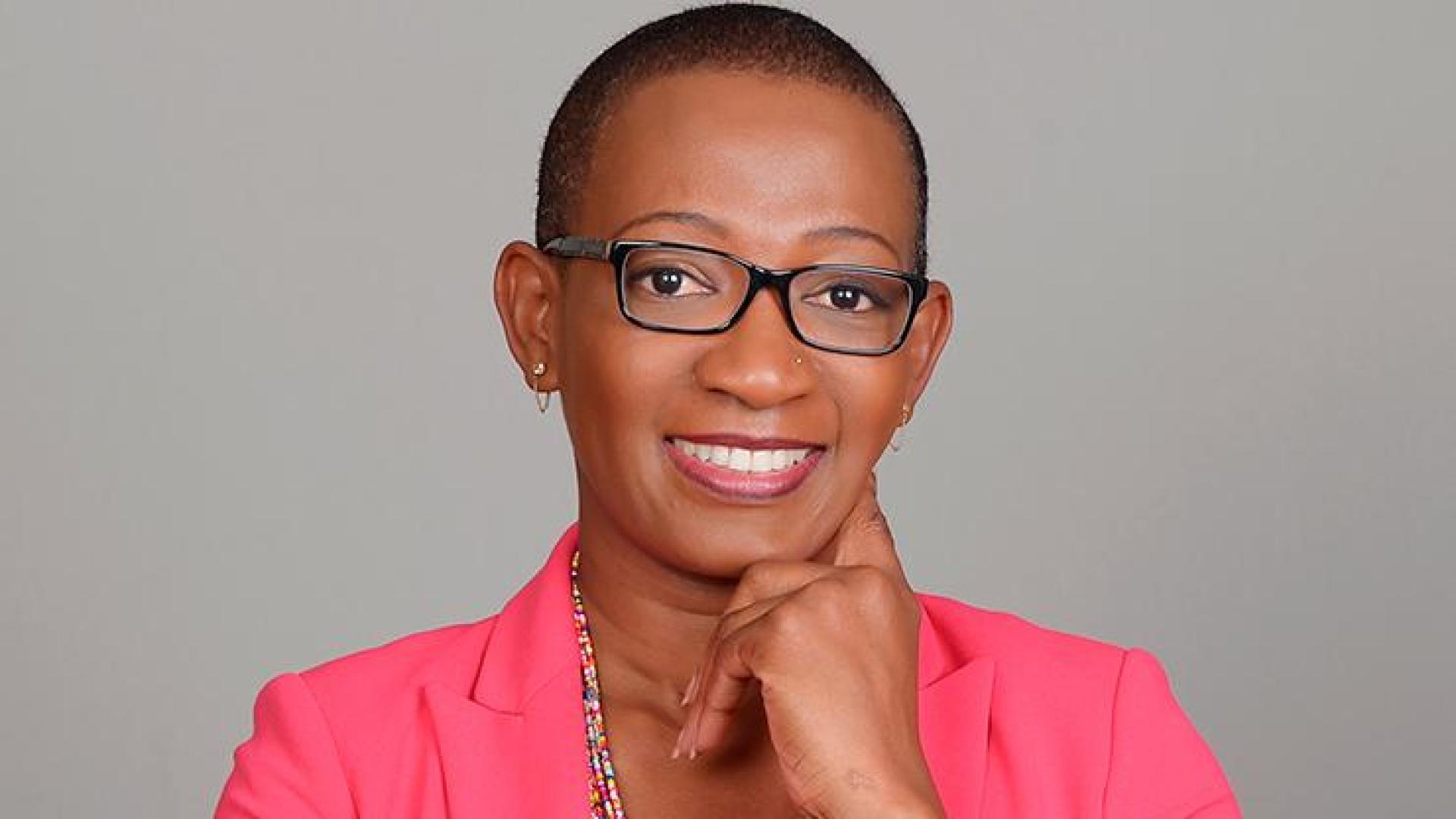
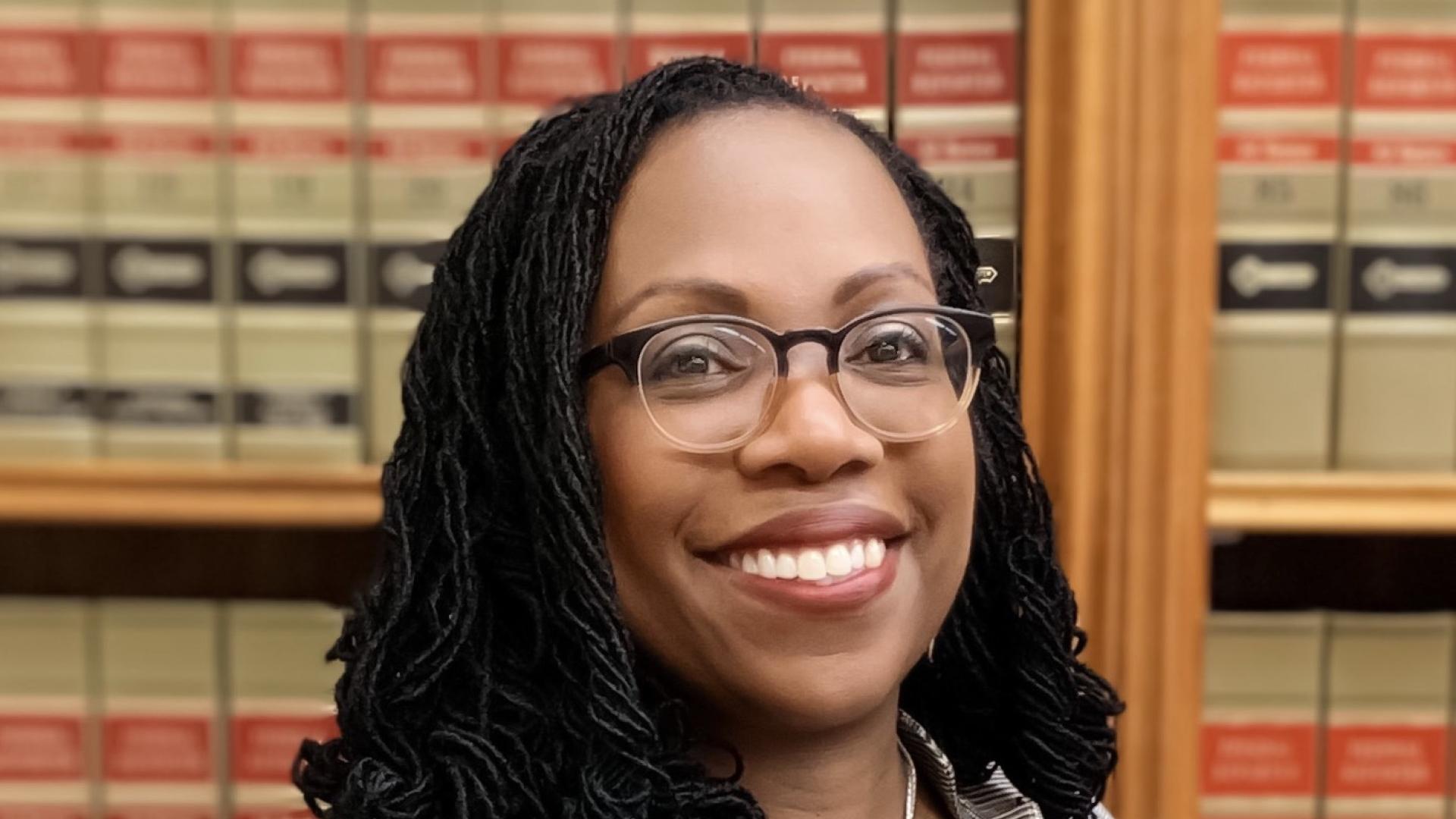
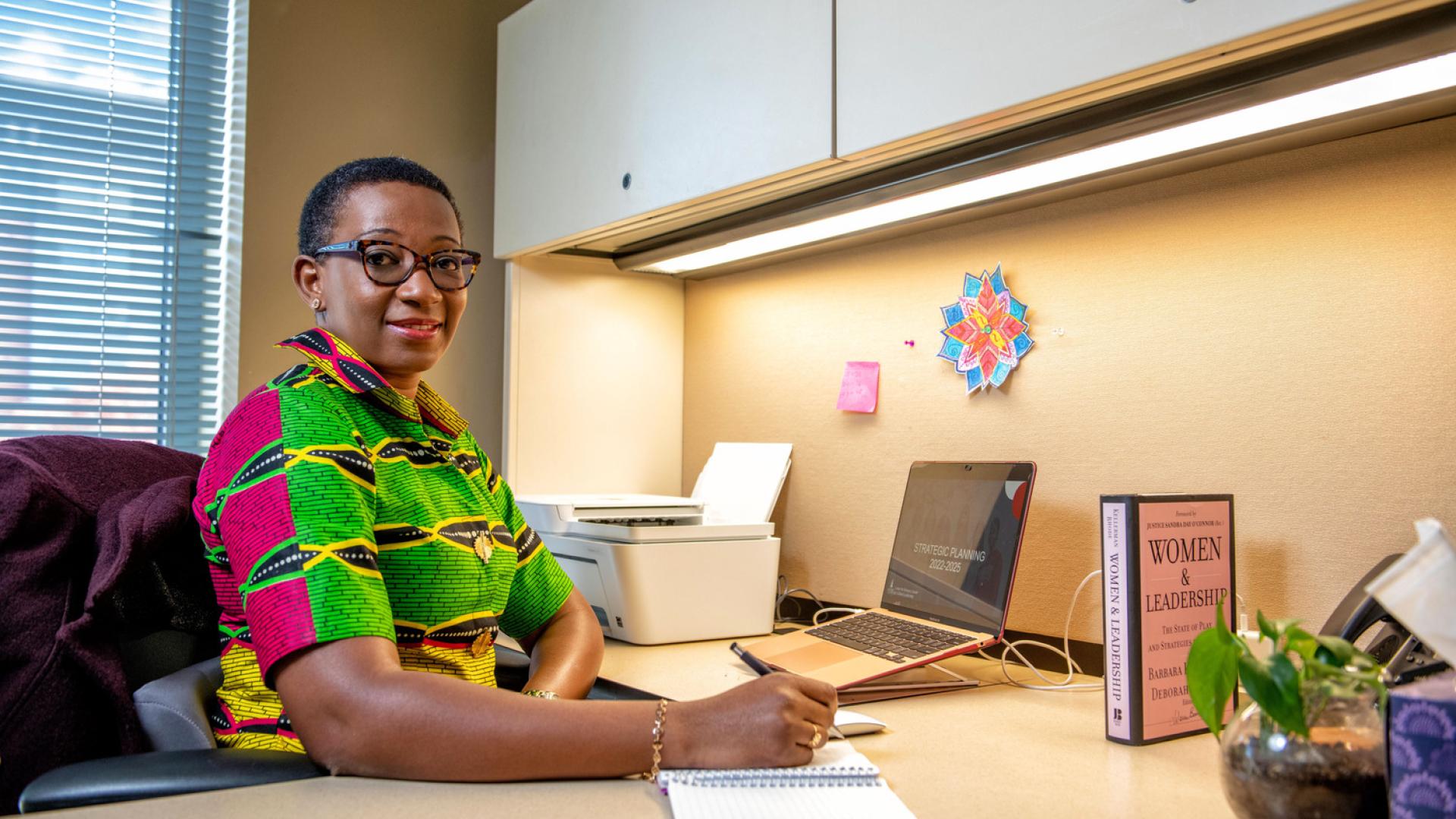
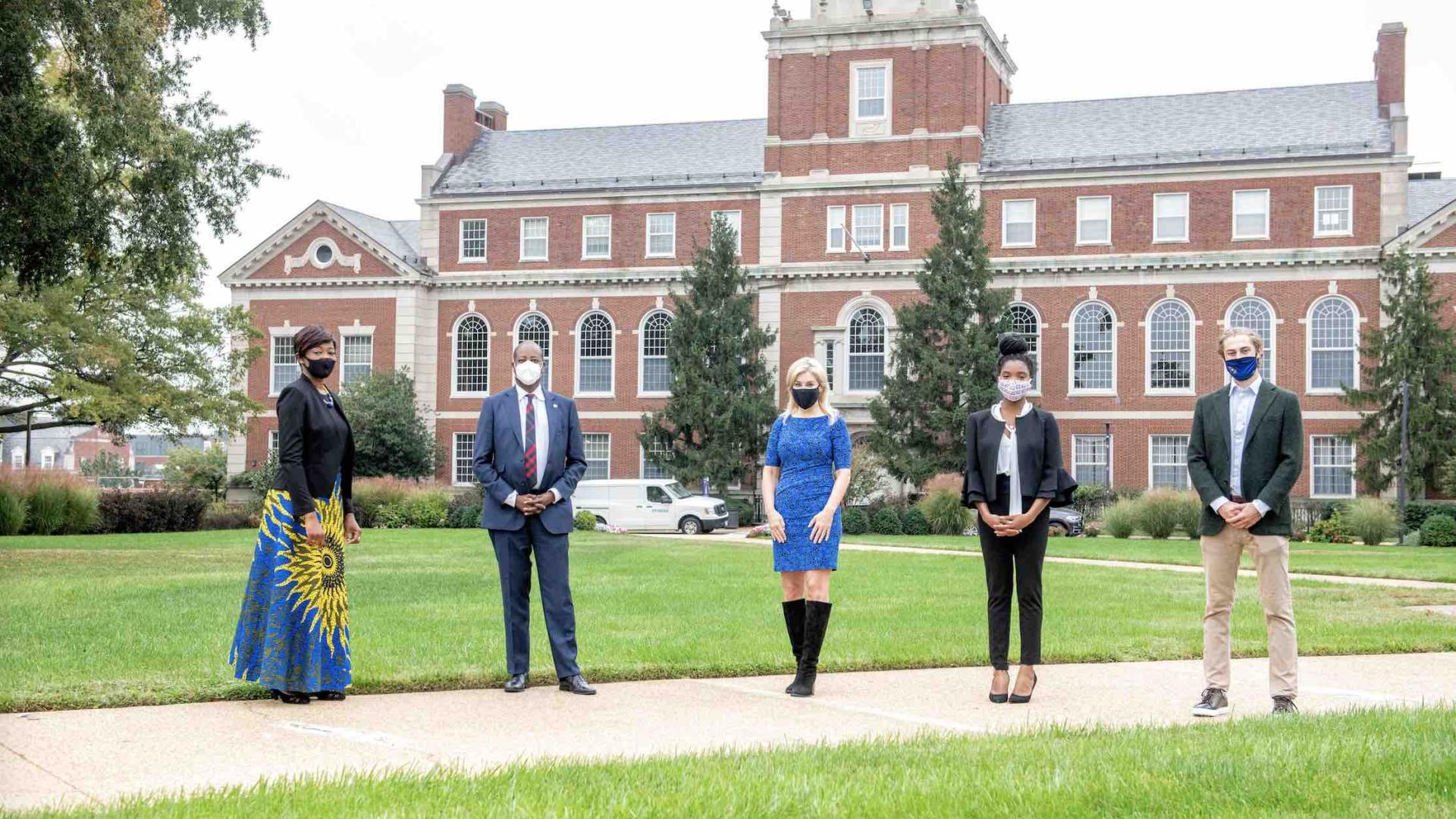
Legal Practice Council chairperson Kathleen Matolo-Dlepu , Judge Thina Siwendu of The Gauteng High Court, and Prof. Jarpa Dawuni of Howard University weigh in on issues affecting women in South Africa - 66 years after the 9 August 1956 march against oppressive pass laws.
Dr. J.Jarpa Dawuni joins Dr. Frederick to discuss the importance of empowering women.
As we celebrate women’s month this March, we take note of several momentous firsts for women – first female U.S. vice president, first female president of Tanzania, and the first director-general of the World Trade Organization. Although we applaud these strides, we ask is it enough?